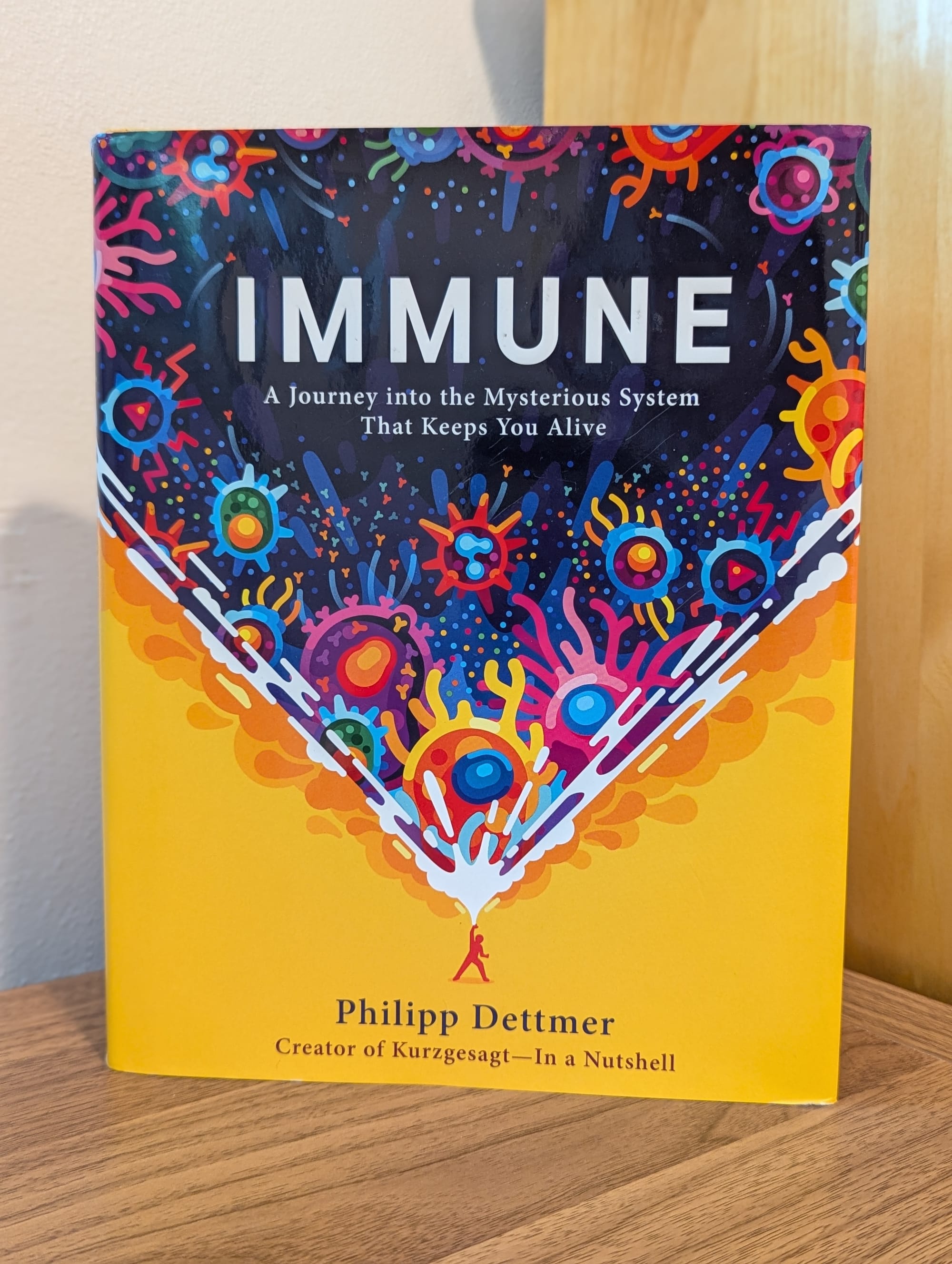Book Review: Immune

Life is a complicated matter, full of wonder and the unknown. Even more so, how we can continue to stay alive throughout our numerous years and doing so without ever reverting back to some amorphous mass of individual cells. Some monstrous construction of living tissue all specialized and equipped for a particular task that defines their existence. Such a thing is true in ways, yet our cells have evolved throughout millions of years to form a vast interconnected system of teamwork. Allowing for a strengthened equilibrium, a nice comfy environment in which homeostasis becomes easier to manage; only trade off being that everyone has a job to do.
The human body is that environment, an amalgamation of trillions of individuals working together towards a common goal, survival. Immune, by Philipp Dettmer creates an enthralling window into a new perspective. A creative view into the very processes that maintain our survival.
In many microbial ways, our body is a near impenetrable fortress, a fort knox equivalent of defense if not more, protecting a wealthy land of gold and abundance. Outsiders live in a world of extreme uncertainty and are looking for any chance to take a piece of the pie, invading in a whole host of ways while constantly figuring out new ways to trick the guards or slip past the fences. Quite early on into cellular evolution this prompted the need for a sort of arms race, cooperative against pathogenic cells. As cells grouped together and pooled resources, it allowed certain ones to specialize in defense. Evolving new cells to encode genetic memory and specific antigen receptors into the surrounding cells, or release crippling proteins bound to known pathogens.
Our immune system is a baffling dance of minimizing chance, controlled destruction, and synchronicities. With a vast majority of its strongest weapons flowing aimlessly through your veins or lymphatic system, until by pure chance it bumps into a recognizable antigen, typically initiated through a Dendritic cell that has scavenged a recent site of invasion and covered itself with pieces of foreign cells.
Yet even that is a superbly simple explanation, as there are 22 major cells that makeup your innate and adaptive immune system, over 20 major different types of proteins that can be produced in the complement system and literally a quintillion different types of possible antibodies to be formed in response to an infection. We have the largest known biological encoded memory in our genes, able to remember specific pieces of every single cell our body has ever come into contact with and how to deal with it. However it can take awhile to flip through a few quintillion pages to find the exact recipe to knock out an enemy.
Which is why the immune system developed a few go-to responses in case any sign of intruder ever flags up to begin with. Slowing down protein synthesis through inflammation or a constant patrol of giant tentacled cells meant to discover foreign particles, tear them apart and digest them, later to be taken to the thymus for further analysis towards immunity. Before all, the most significant preventative is our skin, a desert landscape of dead cells, constantly shedding themselves and any stowaways off the body.
These systems are meant to slow down pathogenic growth to buy time for the adaptive immune system to find and recognize the invaders' antibodies. Once so, adaptive cells trigger a cascade of immune activity, giving certain cells a license to kill and destroy infected parts of you. Yet cleverly so, once activated these killer cells are held to a timer before they must commit a clean and controlled suicide to prevent further damage. Only if they continue to detect enemy particles or be activated by helper cells will they delay their end. Resulting in a wave of death until hopefully so few invaders remain they no longer pose a threat and can be dealt with casually while the adaptive cells die off.
Disease is a scary thing, yet our immune system holds the power to kill us in minutes, faster than any virus or bacteria. It is a ferocious and refined force of nature that maintains a constant dominance for all our sake. To understand these things is to understand yourself, a recognition towards the symbiosis kept going with a near invisible and unannounced personal army. Philipp Dettmer and the people at Kurzgesagt have created the perfect rendition for any of those wanting to explore some of the most complex biological processes imaginable and having it broken down in a manner to which anyone can comprehend.
